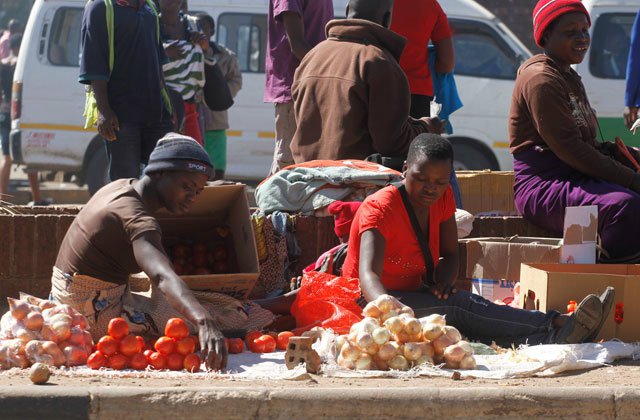By Helen Kadirire
High Court judge Justice David Mangota has dismissed with costs an application by the Vendors Initiative for Social and Economic Transformation (Viset) seeking to be allowed to continue selling food on the streets of Harare.

The application was after Harare City Council (HCC) and a ministerial taskforce banned the sale of cooked and uncooked foods in the CBD following a typhoid outbreak that claimed two lives in Mbare early this year.
In the application, Viset cited HCC, Local Government ministry and the Zimbabwe Republic Police as respondents.
The vendor group argued that municipal police and members of the ZRP were vandalising vendors’ property and using brute force in removing traders from the streets, which in turn affected their livelihoods.
HCC, represented by acting town clerk Josephine Ncube, argued in their opposing affidavit that Viset should have presented its membership permit to show that it represents registered vendors.
She also said while the temporary eviction was for street food vendors, Viset should have provided a register showing its members.
“One does not become a vendor by virtue of belonging to some vendors association but by registration with the first respondent (HCC) in terms of section 5(3) of the Harare (Vendors) By-law SI159/2014…What was confiscated and destroyed was perishable food which was being sold by street vendors.
“This was done in terms of Section 11 of the Harare (Vendors) By-law as read with section 101 of the Public Health Act,” Ncube said.
ZRP commissioner-general Augustine Chihuri, who was cited as one of the respondents, argued that the application for stay was baseless as the vendors were not registered and could not be protected from eviction.
Chihuri also said the rights being claimed by Viset were not absolute and had to be exercised with restraint.
“Section 86(2)(b) stipulates that fundamental rights including those cited by the applicants are subject to limitations which include public health, a factor so important to the extent of overriding issues being raised by the applicants.
“Applicants have thus failed to weigh the loss of life and the potential increase in such deaths and they cannot claim such rights while endangering the lives of people. In fact, applicants were educated both through the notice and public campaigns to go to designated vending sites as a measure to contain the spread of typhoid but they remained adamant,” Chihuri said in his opposing affidavit. Daily News






